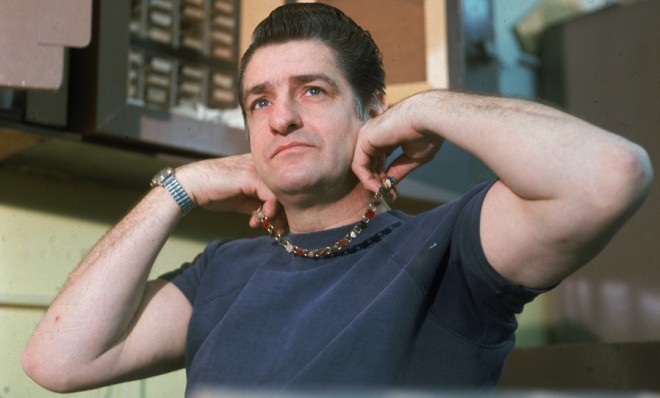The Boston Strangler: Finally unmasked?
New DNA evidence could solve at least one murder in the 50-year-old case


A free daily email with the biggest news stories of the day – and the best features from TheWeek.com
You are now subscribed
Your newsletter sign-up was successful
Half a century after a spate of murders attributed to the Boston Strangler roiled the city, authorities said Thursday that they think they've finally cracked the case.
Advances in DNA technology have given investigators new hope that they can pin at least one of the unsolved 1960s murders on longtime suspect Albert DeSalvo, who confessed to the crimes but was never convicted.
Suffolk District Attorney Daniel Conley said that a DNA test had provided a "familial match" that linked DeSalvo to the 1964 rape and murder of Mary Sullivan, who is believed to be the Strangler's last victim. He said investigators would exhume DeSalvo's body shortly, and that they expected to find a perfect DNA match.
The Week
Escape your echo chamber. Get the facts behind the news, plus analysis from multiple perspectives.

Sign up for The Week's Free Newsletters
From our morning news briefing to a weekly Good News Newsletter, get the best of The Week delivered directly to your inbox.
From our morning news briefing to a weekly Good News Newsletter, get the best of The Week delivered directly to your inbox.
That match would not only definitively tie DeSalvo to Sullivan's death, Conley said, but it would "give us a glimmer of hope that there can be one day finality, if not accountability, for the families of the 10 other women murdered so cruelly."
The big break in the case? A discarded water bottle.
Boston Police Commissioner Ed Davis said investigators were able to obtain DNA from a preserved semen sample in the Sullivan case. Police then trailed members of DeSalvo's family, and scooped up a discarded water bottle one of them had been using. A test of DNA from that water bottle matched the DNA from the semen, Davis said.
In another sign of how new technology has impacted the investigation, the BPD announced their big news with a tweet.
A free daily email with the biggest news stories of the day – and the best features from TheWeek.com
Thirteen women were brutally murdered in the Boston area from 1962 to 1964, most of them strangled and sexually assaulted. While being held on unrelated armed robbery and sexual assault charges, DeSalvo confessed in 1965 to the eleven murders attributed to the Strangler, as well as to two others. He was sentenced to life in prison, and then stabbed to death by another inmate in 1973.
Jon Terbush is an associate editor at TheWeek.com covering politics, sports, and other things he finds interesting. He has previously written for Talking Points Memo, Raw Story, and Business Insider.
-
 Why are election experts taking Trump’s midterm threats seriously?
Why are election experts taking Trump’s midterm threats seriously?IN THE SPOTLIGHT As the president muses about polling place deployments and a centralized electoral system aimed at one-party control, lawmakers are taking this administration at its word
-
 ‘Restaurateurs have become millionaires’
‘Restaurateurs have become millionaires’Instant Opinion Opinion, comment and editorials of the day
-
 Earth is rapidly approaching a ‘hothouse’ trajectory of warming
Earth is rapidly approaching a ‘hothouse’ trajectory of warmingThe explainer It may become impossible to fix
